Health Bites: Timing Is Everything
Health Bites: Timing Is Everything
Health Bites: Timing Is Everything
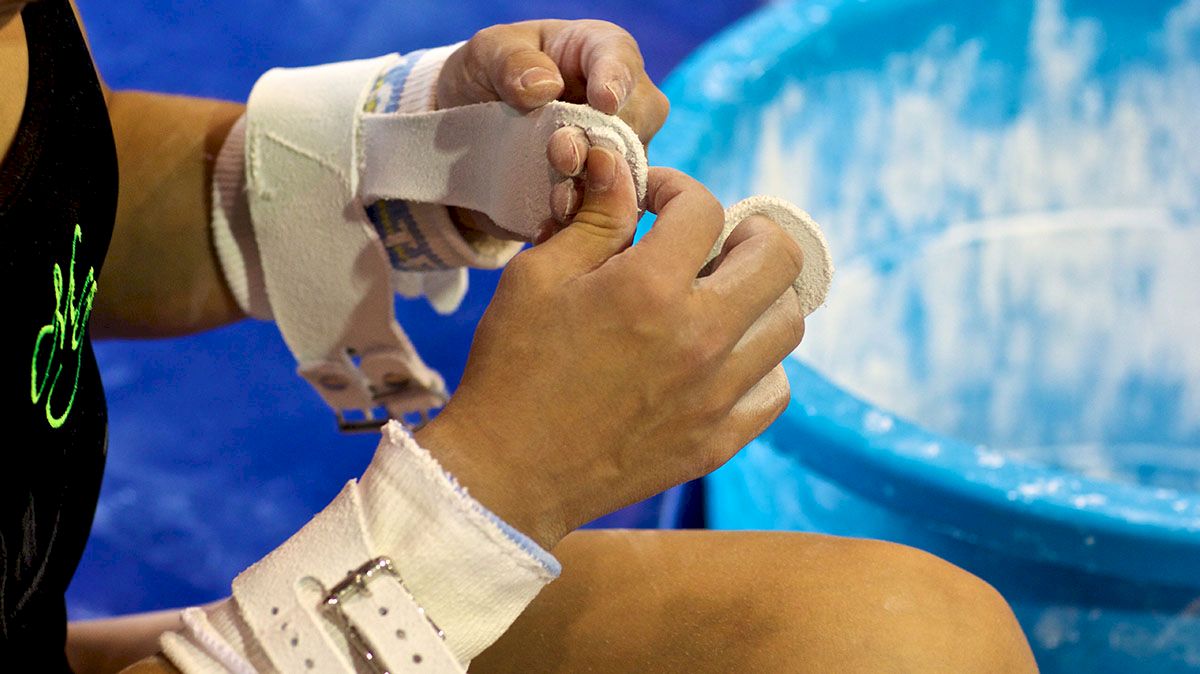
By Karen Psiaki, RDN
IOC Certified in Sports Nutrition
My name is Karen, and I’m a Registered Dietitian as well as a former gymnast. Over the next several weeks, I will be writing about health and nutrition topics for gymnasts, ranging from body image and weight management to hydration, meal timing, and specific nutrient needs. If you have a nutrition question or topic you’d like me to cover, write it in the comment section below or send Gymnastike an email!
-------------
-------------
Who here has ever eaten a meal or a snack in the car while rushing to or from practice? Who has ever wondered “Should I have a snack now and risk feeling uncomfortably full or just be hungry for the next 4 hours?” Who here has ever made the decision to try a new food and then regretted it halfway through a workout? If we got a group of gymnasts together, I bet every hand in the room would go up.
With busy schedules centered on long workouts, it’s inevitable that questions and concerns come up regarding meal timing. But there are simple guidelines that can help take some of the stress out of this daily task! Upcoming posts will focus more on the specific nutrients that are important for gymnasts, but for now, let's talk about the basics:
Practice Days
• Eat 3 small-to-medium sized meals and at least 2 snacks throughout the day.
- Focus on light, bland snacks before practice to avoid a stomach ache. Ex: fresh fruit, granola bar, trail mix, pretzels, dry cereal, or crackers.
- Sports bars also work as quick snacks. Choose ones with < 300 calories & < 30% of calories from fat.
- Sports bars also work as quick snacks. Choose ones with < 300 calories & < 30% of calories from fat.
- Dairy foods (including milk, cheese, and yogurt) may cause reflux or sit heavily during practices. Save those foods until after a workout.
• Don’t go more than 4-5 hours without eating during the day.
- This will help prevent lags in energy and will offer a constant stream of muscle fuel.
- This will help prevent lags in energy and will offer a constant stream of muscle fuel.
- Start off right with breakfast and keep a consistent schedule for the rest of the day.
- If practices are 4+ hours, consider packing a mid-workout snack.
- Eat within the first hour after a workout… this helps with muscle recovery and growth!
• Focus on variety!
- Eat foods from all of the food groups— they’re all valuable for a well-rounded diet.
- If you want to try a new food or beverage, do it on a rest day or after the last practice of the day.
• Sip water and other fluids throughout the whole day, not just when you eat!
- This keeps you hydrated but avoid bathroom emergencies due to bouncing & pounding in workouts.
- Dehydration can cause dizziness, headaches and fatigue… none of which are good!
- A good goal is to drink 64 ounces (about 2 large Nalgene bottles) of fluid per day.
- On hot days or during extra-sweaty workouts, you may need more to compensate for extra losses.
Competition Days
• Don’t try anything new! Stick to your normal eating pattern before the competition.
- You don’t want to spend the day feeling less than 100%.
- You don’t want to spend the day feeling less than 100%.
- Consider planning out your competition-day nutrition plan ahead of time, and then practice it!
• Don’t let nerves prevent you from eating and drinking.
- Eating might be the last thing on your mind, but your body needs the fuel, so do it anyways!
- Keep a water bottle and an emergency snack in your gym bag... just in case.
- Coaches don’t want you running to the bathroom constantly because you’re nervous, but you won’t perform well if you're dehydrated.
- Keep a water bottle and an emergency snack in your gym bag... just in case.
- Coaches don’t want you running to the bathroom constantly because you’re nervous, but you won’t perform well if you're dehydrated.
• Don’t throw health out the window after the competition ends.
- Keep up a well-balanced diet. Remember: your body is recovering just like after a normal workout.
Related:
Body Image and Disordered Eating
Shedding Light on the Carbohydrate Debate
Packing on Power With Protein
Nutrition's F-Word
Nutrition During Injury Recovery
Related:
Body Image and Disordered Eating
Shedding Light on the Carbohydrate Debate
Packing on Power With Protein
Nutrition's F-Word
Nutrition During Injury Recovery
Related Content
 Replay: Lander vs Mars Hill | Mar 28 @ 6 PM
Replay: Lander vs Mars Hill | Mar 28 @ 6 PMMar 29, 2024
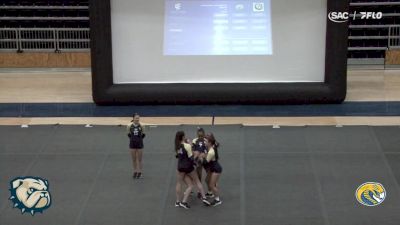 Replay: Coker vs Wingate | Mar 21 @ 6 PM
Replay: Coker vs Wingate | Mar 21 @ 6 PMMar 22, 2024
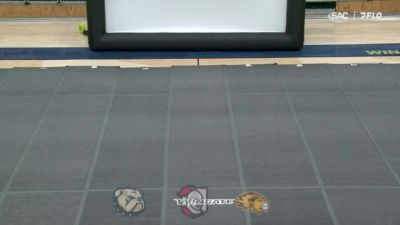 Replay: Wingate Tri-Meet - Acrobatics & Tumbling | Mar 15 @ 5 PM
Replay: Wingate Tri-Meet - Acrobatics & Tumbling | Mar 15 @ 5 PMMar 15, 2024
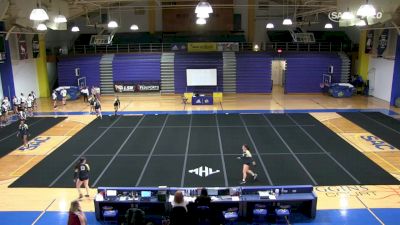 Replay: Mars Hill Tri-Meet | Feb 16 @ 6 PM
Replay: Mars Hill Tri-Meet | Feb 16 @ 6 PMFeb 17, 2024
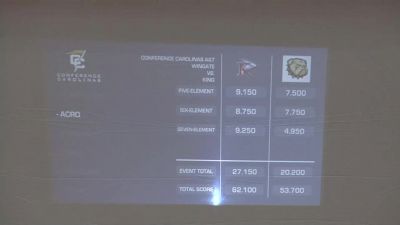 Replay: King (TN) vs Wingate - 2024 2024 King (TN) vs Wingate - Acrobatics & Tumbling | Feb 10 @ 4 PM
Replay: King (TN) vs Wingate - 2024 2024 King (TN) vs Wingate - Acrobatics & Tumbling | Feb 10 @ 4 PMFeb 10, 2024
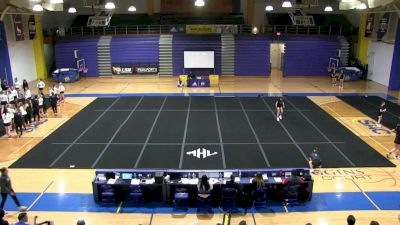 Replay: Belmont Abbey vs Mars Hill | Feb 10 @ 3 PM
Replay: Belmont Abbey vs Mars Hill | Feb 10 @ 3 PMFeb 10, 2024
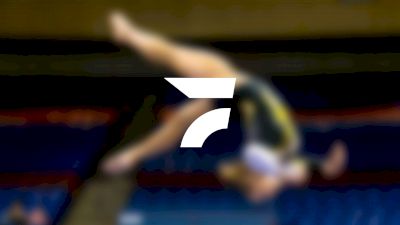 How to Watch: 2024 King (TN) vs Wingate - Acrobatics & Tumbling | Gymnastics
How to Watch: 2024 King (TN) vs Wingate - Acrobatics & Tumbling | GymnasticsFeb 10, 2024
 How to Watch: 2024 Wingate Tri-Meet | Gymnastics
How to Watch: 2024 Wingate Tri-Meet | GymnasticsFeb 8, 2024
 How to Watch: 2024 Wingate Tri-Meet | Gymnastics
How to Watch: 2024 Wingate Tri-Meet | GymnasticsFeb 8, 2024